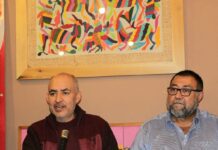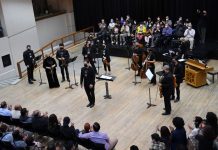Lo más reciente
Podcasts
ARTE Y CULTURA
MÚSICA
CIENCIA Y TECNOLOGÍA
DEPORTES
ECOLOGÍA
JUVENTUD
MODA
POLÍTICA
PROYECTOS BINACIONALES
STARTUPS
La línea al momento
El Horóscopo de Hoy
 TAURO (SHOR)
TAURO (SHOR)(del 20 de abril al 20 de mayo)
Horóscopo para hoy
miércoles, marzo 13, 2024
miércoles, marzo 13, 2024
Muévase porque hay mucho por hacer. Viaje o al menos piense en destinos posibles que le ayuden en su carrera. No espere ayuda ajena, tome la iniciativa.
PERSONAJES DISTINGUIDOS
Adiós al Maestro: Legado y Trayectoria de Jorge Conde
El pasado martes 13 de febrero, la comunidad artística de Baja California lamentó la partida de Jorge Conde, insigne impulsor cultural y distinguido miembro...
NOTAS LUCTUOSAS
Fallece Carlos Urzúa, ex Secretario de Hacienda de México y figura...
El deceso de Urzúa fue confirmado por su familia generando una ola de condolencias y muestras de respeto por parte de diversos sectores de...














































